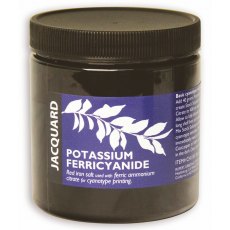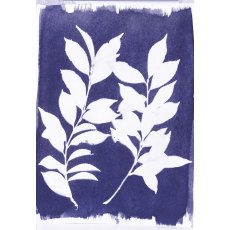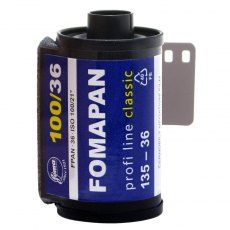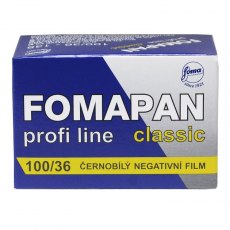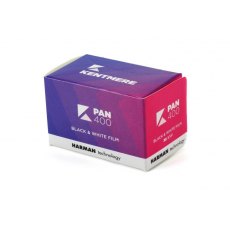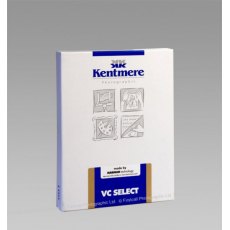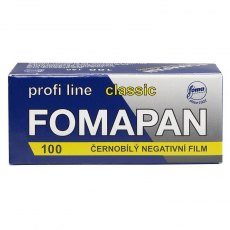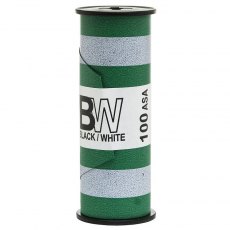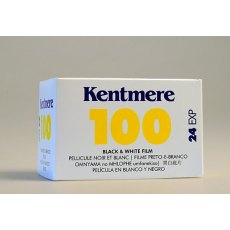Product Description
We all know that in modern day Britain it can be difficult to accommodate a darkroom at home and even in education establishments there might not be the will or expertise to set up a darkroom from scratch. But that's no reason not to explore the fascinating world of analogue in a contemporary way.
Printing-out paper or Sunprints are based on the old process of cyanotype printing. Distinctive for producing Prussian blue monochromatic prints, Cyanotype photographs are made by placing objects such as leaves, shells, flowers or textured patterns onto the surface and exposing for a few minutes in sunlight onto a sheet of our paper. The paper is then rinsed with water for 30 seconds to reveal the print.
The result is an image formed by light and objects. The objects block light from the paper, creating white shapes. Areas not blocked - exposed to light completely - are blue/cyan. We thoroughly recommend this process for art and nature projects within schools. Developed in the mid-19th century, cyanotype was quickly embraced as an inexpensive method for reproducing photographs, documents, maps and plans (hence the enduring architectural term - blueprint).
Jacquard's new cyanotype chemistry is inexpensive and goes a long way. Despite their perhaps alarming names, both are safe to handle and mix. That said, care should be taken to avoid ingestion, inhalation and contact with skin. Quite simply these are the two base chemicals to make a Cyanotype Kit and if you do it yourself, you not only save money but it's great fun too.
These are Potassium Ferricyanide which is a red salt that is used with Ferric Ammonium Citrate (the light-sensitive iron salt) for cyanotype printing.
We sell both in 8 oz or 230 gram jars.
How to make basic cyanotype sensitizer formula and instructions:
Dissolve 40g (approximately 2 tablespoons) Potassium Ferricyanide in 400ml (1.7 cups) water to create stock solution A. Dissolve 100g (approximately .5 cup) Ferric Ammonium Citrate in 400ml (1.7 cups) water to create stock solution B. Mix stock solutions A & B in equal parts to create the cyanotype sensitizer. Coat paper or fabric with the sensitizer and allow to dry in the dark. Once dry, make exposures in sunlight or under a UV light source (3-15 minutes, depending on conditions), placing objects or a film negative on the coated surface to create an image. After exposure, prints are processed in a tray of cool water and allowed to air dry.
Customer Reviews







Manufacturer's Description
How to make basic cyanotype sensitizer formula and instructions:
Dissolve 40g (approximately 2 tablespoons) Potassium Ferricyanide in 400ml (1.7 cups) water to create stock solution A. Dissolve 100g (approximately .5 cup) Ferric Ammonium Citrate in 400ml (1.7 cups) water to create stock solution B. Mix stock solutions A & B in equal parts to create the cyanotype sensitizer. Coat paper or fabric with the sensitizer and allow to dry in the dark. Once dry, make exposures in sunlight or under a UV light source (3-15 minutes, depending on conditions), placing objects or a film negative* on the coated surface to create an image. After exposure, prints are processed in a tray of cool water and allowed to air dry.
Returns
All returns for purchased items are covered in our Customer Service section below under the sub-headings of Cancellation, Replacement and Terms and Conditions. Our returns policy is fully compliant with UK Online and Consumer Contracts Regulations (updated February 2020).Delivery
Most orders incur a total order delivery charge of £7.99 including VAT for mainland UK delivery. All goods are shipped by courier services. The companies we use are DPD or DHL and parcels are delivered in 48 hours or sooner from date of despatch. Exceptions to this, including lower delivery charges, can be found in the Information section for Delivery at the bottom this page.Collect in Store
This item is available for collection.







 In stock
In stock